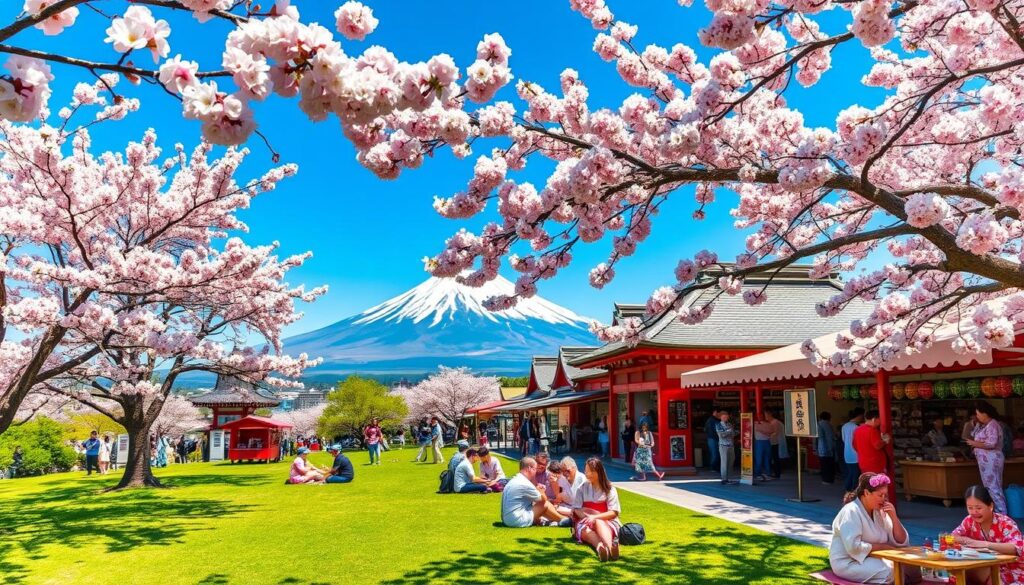Golden Week in Japan is one of the most exciting and vibrant times of the year. In 2025, this festive period runs from April 29 to May 6, offering a unique blend of cultural celebrations and travel opportunities. It includes four national holidays, such as Showa Day and Children’s Day, each rich in history and tradition.
This week is not just about the time off; it’s a chance to explore Japan’s bustling cities and serene countryside. Many people venture to popular spots, making it essential to plan ahead for accommodations and transportation. The anticipation builds as travelers prepare for the lively festivals, cherry blossom viewings, and local events that mark the season.
If you’re someone who loves Japan, knowing about Golden Week 2025 will help you make the most of this special time. Whether you’re planning a visit or just curious about the celebrations, this guide will provide you with everything you need to know to enjoy Golden Week to the fullest.
What is Golden Week?
Golden Week is one of Japan’s most cherished holiday seasons, offering a time for relaxation and celebration. Established in 1948, this week combines several national holidays, allowing for extensive travel and cultural experiences. Understanding its history and the specific holidays during this period can enrich your experience, especially if you’re planning to visit in 2025.
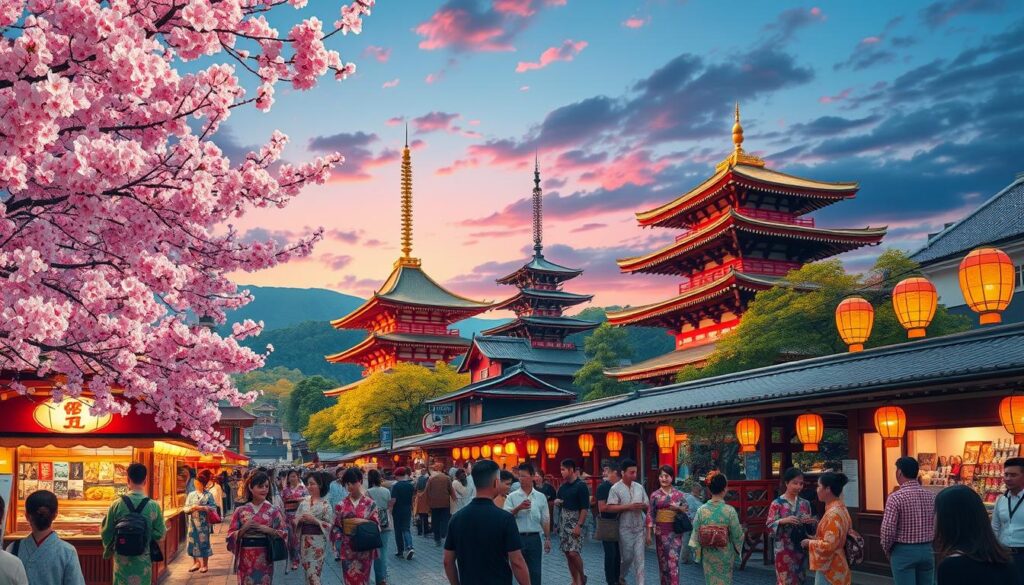
Historical Overview
Golden Week began its journey in 1948, following the enactment of the National Holiday Law. This law was a significant development in post-war Japan, aimed at providing citizens a chance to rest and celebrate their national identity. The name “Golden Week” was coined in 1951, inspired by the idea of this holiday period being a “golden time” for leisure and family gatherings. Over the years, additional holidays became part of this festive week, reflecting changes in Japan’s cultural and social landscape. Notably, the holidays often have deep roots in traditional practices and historical events, such as Boy’s Day and Showa Day, which is celebrated on April 29.
For more details on the establishment of Golden Week, you can check out What is Golden Week? The History of Japan’s Longest Holiday.
Current Holidays
In 2025, Golden Week will span from April 29 to May 6, encompassing several significant holidays that unite the nation in celebration. Here’s a quick look at the holidays included during this vibrant week:
- Showa Day (April 29): A day to reflect on the Showa era and its impact on modern Japan.
- Constitution Day (May 3): Celebrating the promulgation of the post-war constitution in 1947, a cornerstone of Japanese democracy.
- Greenery Day (May 4): A day dedicated to nature and the environment, encouraging appreciation for Japan’s lush landscapes.
- Children’s Day (May 5): A celebration of children’s happiness and health, marked by the display of koinobori (carp streamers) to symbolize growth and success.
While these national holidays make up Golden Week, many Japanese people also take additional leave, extending their time off for family trips and leisure activities. For more about the specific holidays in 2025, visit Japan National Holidays and Golden Week Dates 2025/2026.
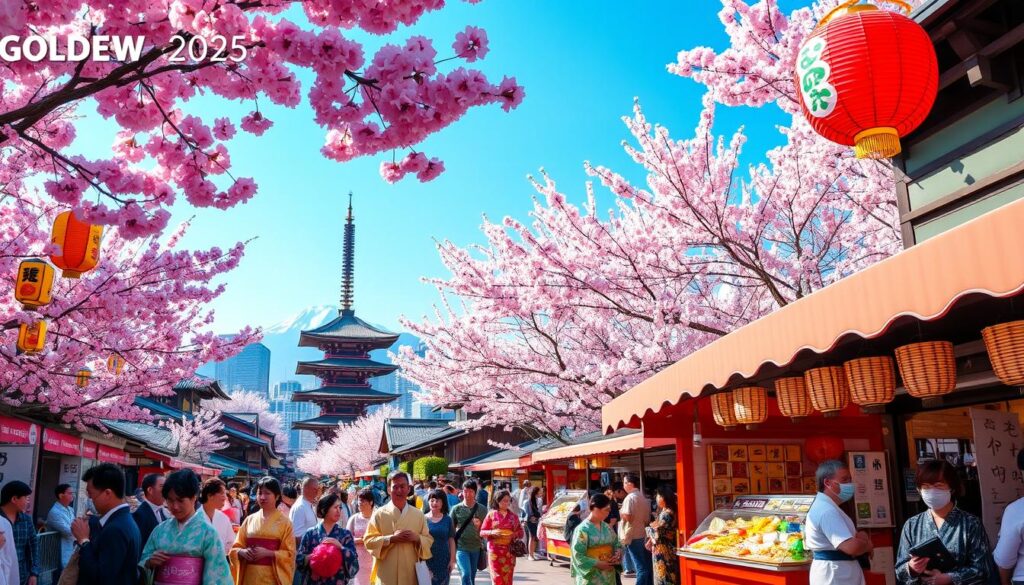
Golden Week is more than just a series of holidays; it’s a vibrant celebration of culture, history, and family that draws millions of travelers each year. Understanding this period will allow you to appreciate the unique customs and experiences it offers.
Golden Week Dates in 2025
Golden Week is an enchanting time in Japan, overflowing with celebrations and cultural significance. Each holiday during this week has its own story and customs. For 2025, here’s a closer look at the notable dates and their meanings.
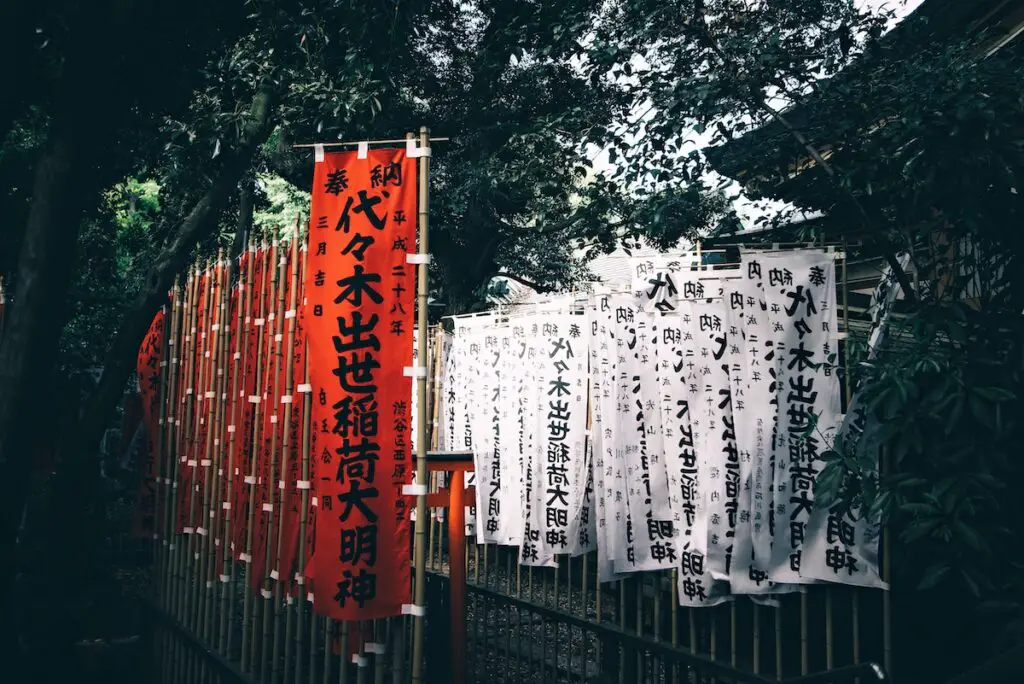
Showa Day
Showa Day, celebrated on April 29, represents the birthday of Emperor Hirohito, known as Emperor Showa. This day serves as a moment for reflection, honoring the era that saw Japan transition through significant changes. From 1926 to 1989, under his reign, Japan experienced both devastation during World War II and remarkable post-war recovery.
Emphasizing the importance of peace and progress, Showa Day encourages individuals to contemplate Japan’s journey. It marks the beginning of Golden Week, setting a festive tone for the days to follow. Many people visit parks and participate in various outdoor activities, celebrating the arrival of spring. For further details on Showa Day’s rich history, visit Showa Day: A National Holiday of Reflection.
Constitution Memorial Day
May 3 is recognized as Constitution Memorial Day, honoring the promulgation of Japan’s post-war constitution in 1947. This day serves as a reminder of the nation’s commitment to democracy, peace, and the rule of law.
Many Japanese citizens engage in discussions about civic responsibility and the importance of their constitutional rights. Schools often host educational events and ceremonies to teach students about the significance of this day. By acknowledging their constitutional framework, the Japanese people celebrate their rights and liberties. To learn more about its relevance, check out Constitution Memorial Day.
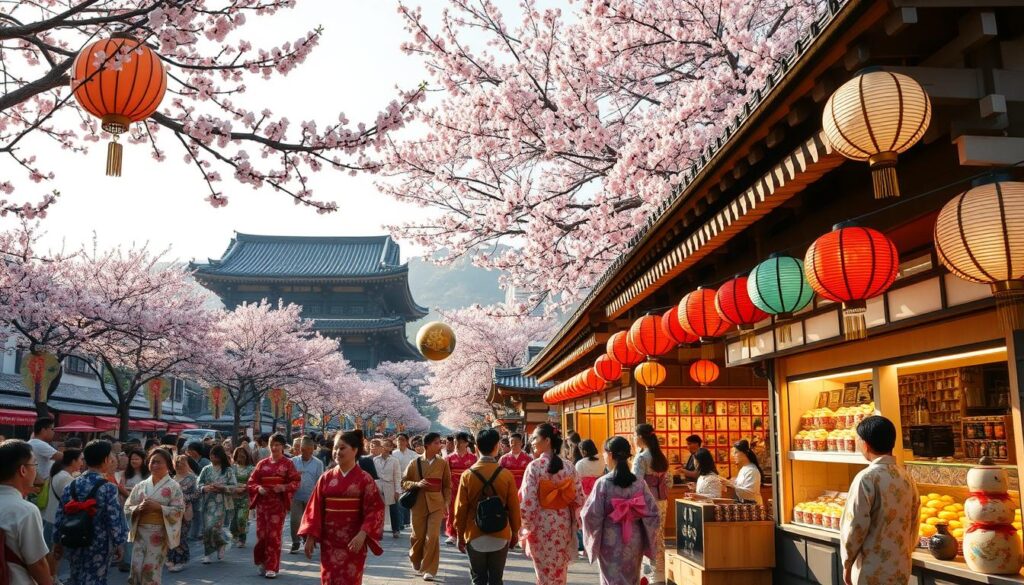
Greenery Day
On May 4, Greenery Day is celebrated, dedicated to nature and the environment. Originally observed on April 29, this day shifted to May 4 in 2007, becoming a part of Golden Week. It encourages people to appreciate and connect with nature’s beauty.
Many families spend the day outdoors, visiting parks and gardens to enjoy the natural surroundings. Activities such as picnics, hiking, and planting trees are common, as communities come together to celebrate the environment. It is a perfect day to reflect on the role of nature in our lives and foster a sense of gratitude. More insights can be found at Greenery Day.

Children’s Day
The festivities culminate with Children’s Day on May 5, a day dedicated to honoring the health and happiness of children across Japan. Known as Kodomo no Hi, this holiday is marked by the display of koinobori (carp streamers) and samurai dolls, symbolizing strength and success.
Traditionally, families pray for their children’s growth and prosperity. The sight of colorful carp flowing in the breeze is a cherished image of this holiday. Children’s Day nurtures family bonds as parents encourage their children to pursue their dreams. To explore how this celebration unfolds, check out Children’s Day in Japan.
These national holidays of Golden Week not only highlight Japan’s rich culture but also emphasize unity and joy amidst traditions. Make sure to immerse yourself in these celebrations to appreciate the vibrant spirit of Golden Week.
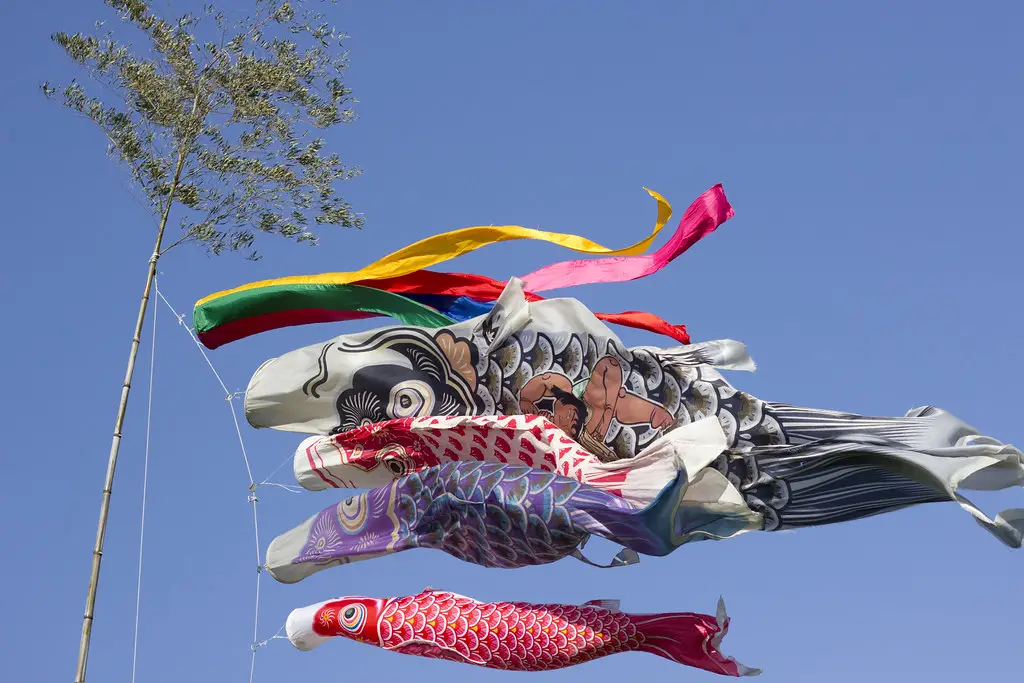
Traveling During Golden Week
Golden Week is a bustling time to travel throughout Japan. For many, it’s a chance to enjoy the holiday spirit, but it also brings along certain challenges. Below are key aspects to consider when traveling during this popular season.
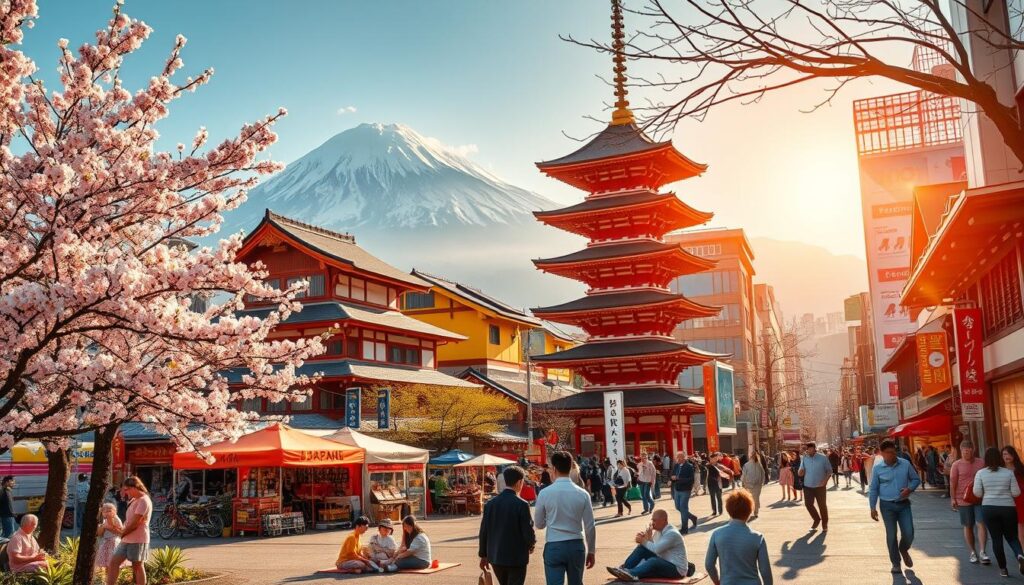
Travel Congestion
Travel congestion during Golden Week is primarily due to the sheer volume of people taking time off. With four national holidays back-to-back, millions of locals and tourists hit the roads, trains, and airports. This surge creates crowded conditions on:
- Public Transportation: Trains, particularly the Shinkansen (bullet trains), see an increase in passenger numbers. Expect longer wait times and packed carriages.
- Roads: Major highways experience heavy traffic, causing delays. Popular destinations may be challenging to reach, especially on weekends.
- Airports: Airports become busier as travelers return home after holiday trips, especially during the final days of the week.
Given this, it’s wise to plan your itinerary carefully. Avoid traveling on peak days, and consider traveling outside conventional rush hours to reduce delays. More insights into navigating travel congestion can be found here.
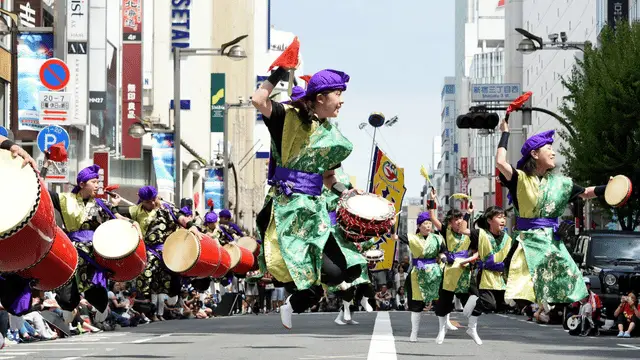
Best Places to Visit
Amid the chaos of Golden Week, Japan offers vibrant and exciting destinations. Here are some must-visit places:
- Tokyo: This bustling metropolis is lively with events, festivals, and cherry blossom viewings. Areas like Shinjuku Gyoen Park are perfect for picnics and celebrations.
- Kyoto: While it tends to get busy, Kyoto’s temples and gardens showcase stunning spring blooms. Managing your visit early in the day can help avoid crowds.
- Hokkaido: A bit off the beaten path, Hokkaido is known for its fresh air and natural beauty. Visiting parks and farms offers a refreshing experience.
- Okinawa: If you’re seeking sunshine, Okinawa’s beaches are the ideal escape. Enjoy activities like snorkeling and traditional festivals.
Many visitors also take part in local events, such as parades and cultural festivals, which are abundant during this time. Learn more about popular destinations during Golden Week here.

Photo by Mikhail Nilov
Booking Tips
To make the most of your Golden Week experience, booking accommodations and transportation in advance is essential. Here are some vital tips:
- Plan Early: Reservations should ideally be made three to six months in advance. This includes flights, trains, and hotels. Availability can dwindle quickly.
- Flexible Dates: If possible, remain flexible with your travel dates. Departing a day earlier or later can save you from heavy congestion.
- Use Group Tours: Consider joining group tours or package deals. These can simplify logistics during peak seasons, allowing you to focus on enjoying your trip.
For more detailed advice on booking adequately for Golden Week, check out this guide here.
Arming yourself with these tips can make your Golden Week travel smooth and enjoyable. Embrace the festive atmosphere and experience the best of what Japan has to offer during this vibrant holiday week!
Cultural Significance of Golden Week
Golden Week in Japan is not just about time off from work; it’s a vibrant celebration that highlights deep-rooted cultural practices and community spirit. This week invites families to reconnect, while festivals and events showcase Japan’s rich heritage. Understanding these elements will enhance your Golden Week experience in 2025.
Festivals and Events
During Golden Week, a wide array of festivals and events take place across Japan, drawing locals and tourists alike. Here are some notable celebrations to look forward to in 2025:
- Saku Hot-Air Balloon Festival: This remarkable event fills the skies with colorful hot-air balloons, offering breathtaking views and a festive atmosphere. It’s free to attend, making it an accessible thrill for families and friends. More details can be found at May 2025 Events in Japan.
- Tokyo’s Meiji Shrine Spring Grand Festival: This traditional event features various Shinto rituals, showcasing Japan’s spiritual heritage amidst the beauty of cherry blossoms. The serenity of the shrine, paired with vibrant ceremonies, creates a unique experience. You can learn more about the festival at May 2025 Events in Tokyo.
- Odawara Hōjō Godai Festival: Held in the historical town of Odawara, this festival celebrates the legacy of the Hōjō clan with parades and traditional performances. Visitors can taste local cuisine and experience history come alive. More information is available here.
- Children’s Day Activities: On May 5, you’ll see koinobori (carp streamers) displayed throughout neighborhoods, symbolizing strength and growth. Families engage in special activities to celebrate their children, reinforcing the importance of community and tradition. For a deeper look at its significance, check out Golden Week in Japan: what is it and how is it celebrated?.
These festivals are more than just events; they represent the love for tradition and community, making Golden Week a special time in Japan.
Family Traditions
Family traditions play a significant role during Golden Week, as this week serves as an opportunity for families to come together. Here’s how families typically celebrate:
- Reunions: Many Japanese people travel home to spend quality time with family. It’s common for multiple generations to gather under one roof, sharing meals and stories. This connection to family roots reinforces the bond across ages.
- Outdoor Activities: Families often head to parks or gardens to enjoy nature, especially with the pleasant spring weather. Picnics are common, where parents prepare bento boxes filled with seasonal treats, creating an enjoyable atmosphere for all.
- Cultural Ceremonies: Engaging in traditional activities is also a highlight. For instance, families may participate in special ceremonies or visit shrines to pray for their children’s health and happiness. The chance to experience these customs together fosters a spirit of unity and appreciation for cultural heritage. More on these experiences can be explored at Exploring the Cultural Traditions of Golden Week in Japan.
- Celebrations of Children: As Children’s Day approaches, families dedicate time to honor their kids. Displaying koinobori and samurai dolls symbolizing strength and resilience is common. This tradition encourages children to pursue their dreams and instills a sense of pride.
Golden Week provides an essential time for families to reinforce their bonds and appreciate their cultural heritage. As you plan your visit for Golden Week 2025, consider how these traditions could enrich your experience.
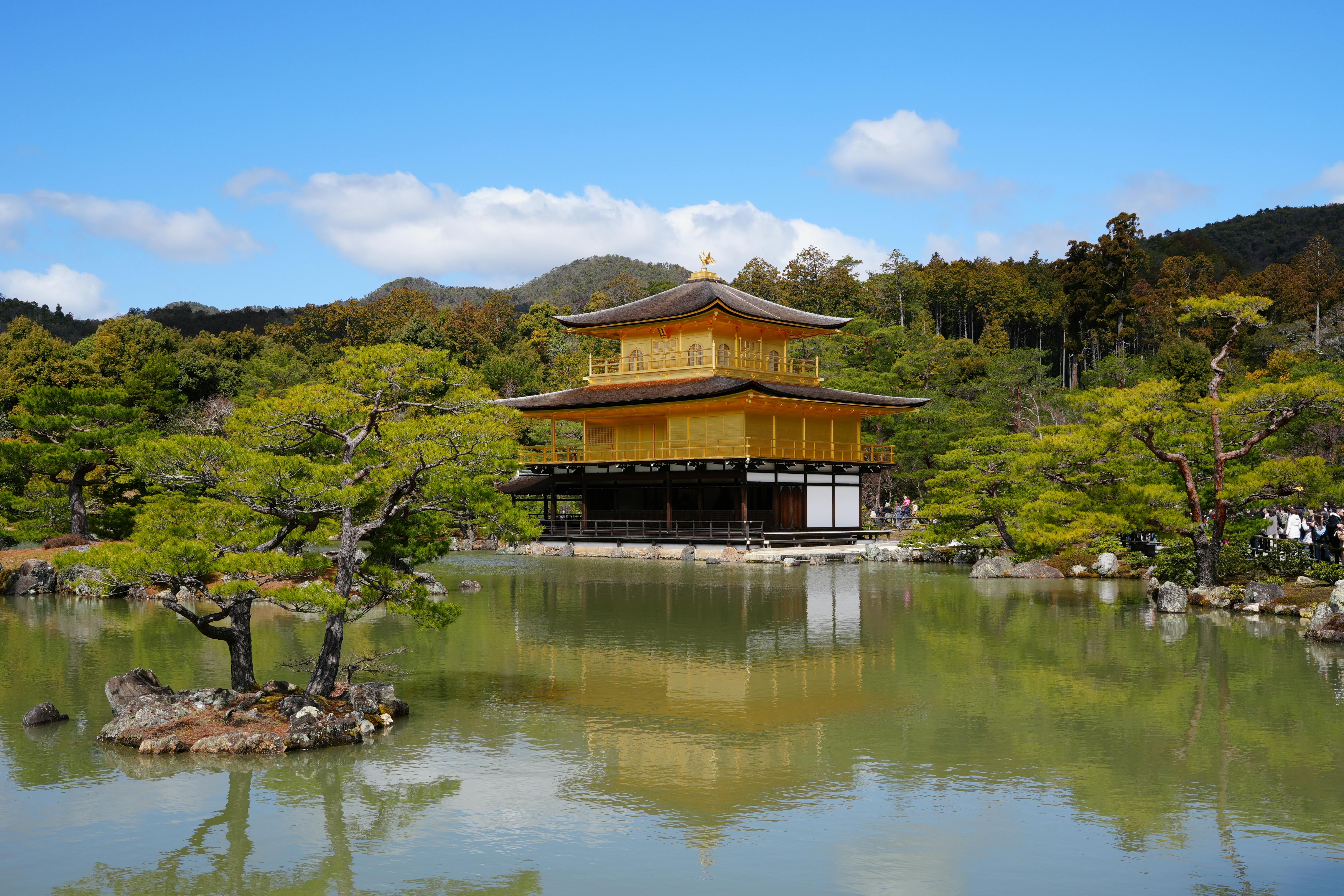
Photo by Dmitry Romanoff
Conclusion
Understanding Golden Week in Japan is essential for anyone planning to visit during this vibrant celebration in 2025. This period is more than just a time off; it represents the country’s rich cultural traditions and a chance for families to reconnect.
Highlights of Golden Week
Golden Week offers a series of national holidays that bring together unique customs and festivities. Noteworthy elements include:
- Historical Reflection: Each holiday allows individuals to reflect on Japan’s past, from Showa Day’s homage to the Showa era to Constitution Day’s emphasis on democracy.
- Family Bonding: The traditions during this time encourage family gatherings, reinforcing intergenerational ties and shared experiences.
- Festivals and Celebrations: Events such as local festivals and public ceremonies create an inviting atmosphere filled with joy and cultural engagement.
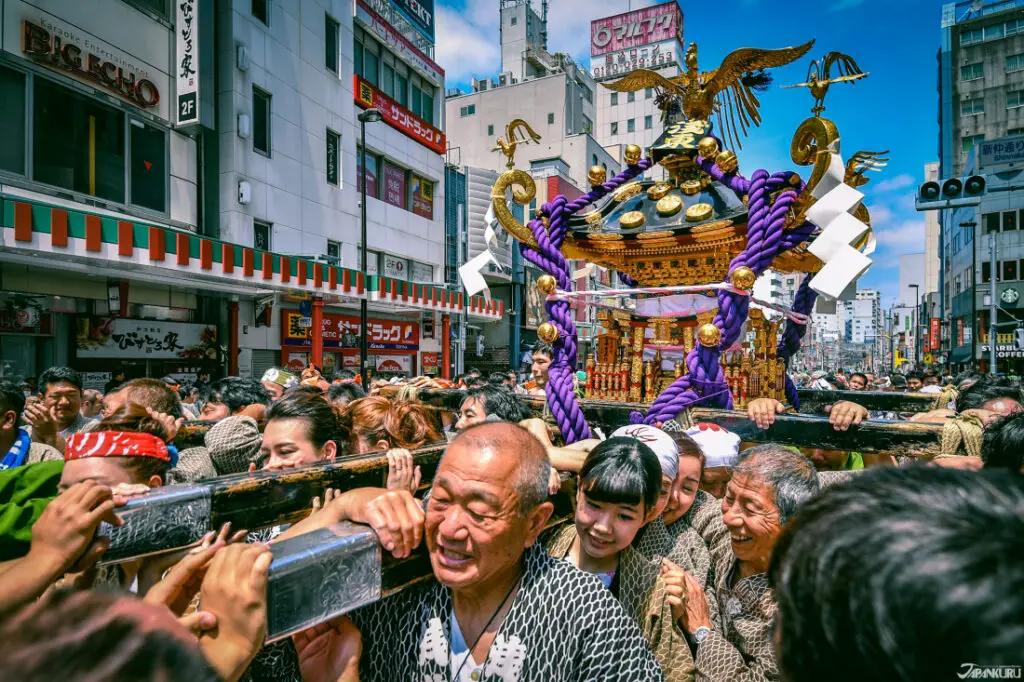
Travel Considerations
As you plan your trip, keep in mind the essential aspects of traveling during Golden Week.
- Anticipate Crowds: Public transport and popular destinations will be crowded, so expect longer wait times.
- Book Early: Making reservations three to six months in advance for accommodations and transportation is crucial to securing your spot.
- Stay Flexible: If possible, adjust your travel dates to avoid peak times and reduce stress.
For more travel tips, you can read Golden Week Japan 2025: Here Some Tips for First Timers! and explore other insights on travel experiences at Navigating Golden Week: Insider Tips for a Memorable Holiday in Japan.
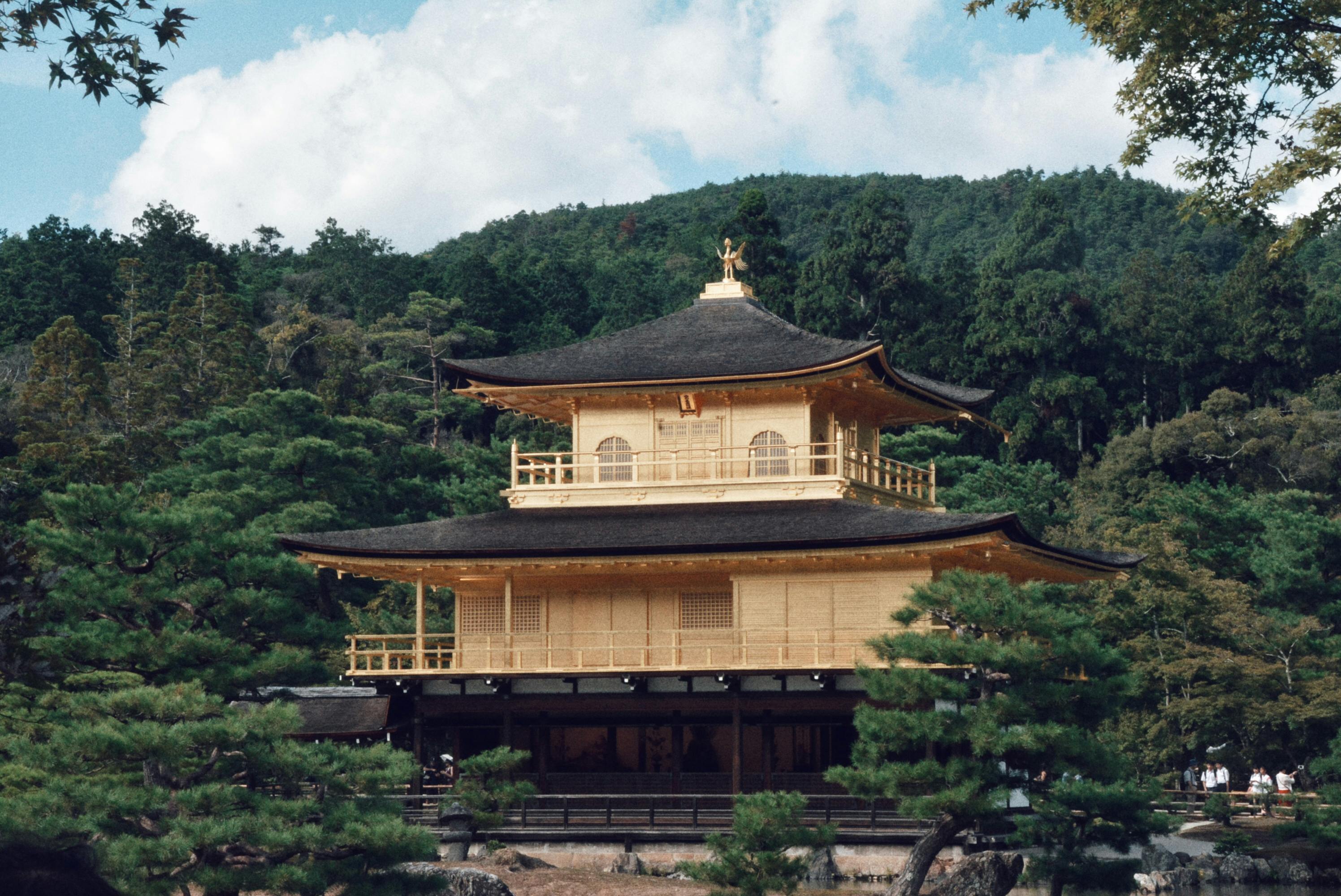
Photo by Như Vân (Wind’s Buddha)
By immersing yourself in the experiences of Golden Week, you’ll not only appreciate a unique aspect of Japanese culture but also create lasting memories during your visit in 2025.

